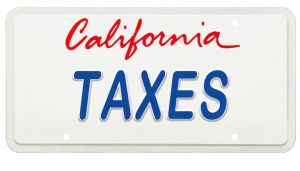Understanding state taxes is an essential part of financial planning for individuals and businesses. In this comprehensive guide, we will delve into the intricacies of Arkansas state taxes, exploring key aspects such as income taxes, sales taxes, property taxes, and credits and deductions. Whether you’re a resident, business owner, or considering a move to Arkansas, this guide will provide you with valuable insights into the state’s tax landscape.
Income Taxes in Arkansas
Arkansas levies a state income tax, which can significantly impact the finances of individuals and families. Here’s what you need to know:
Tax Brackets: Arkansas uses a progressive tax system with six income brackets, ranging from 2% to 5.9%. The tax rate you pay is based on your taxable income, with higher earners subject to higher rates.
Filing Status: Arkansas recognizes various filing statuses, including single, married filing jointly, head of household, and more. The status you choose can affect your tax liability.
Credits and Deductions: Arkansas offers several tax credits and deductions, such as the Homestead Property Tax Credit and the Earned Income Tax Credit (EITC). These can help reduce your overall tax burden.
Standard Deduction: Arkansas has its own standard deduction, which differs from the federal standard deduction. It’s important to consider this when calculating your state income tax liability.
Sales Taxes in Arkansas
Sales taxes are another significant source of state revenue. Here’s what you need to know about sales taxes in Arkansas:
State Sales Tax Rate: Arkansas has a state sales tax rate of 6.5%. This applies to most goods and services, with some exemptions, like prescription drugs and certain groceries.
Local Sales Taxes: In addition to the state sales tax, many counties and cities in Arkansas impose their own local sales taxes. These rates can vary, so it’s essential to be aware of the combined state and local sales tax rate in your area.
Sales Tax Holidays: Arkansas occasionally offers sales tax holidays, during which specific items like school supplies and clothing are exempt from sales tax. These events can be an excellent opportunity for savings.
Property Taxes in Arkansas
Property taxes play a crucial role in funding local government services. Here’s what you should know about property taxes in Arkansas:
Assessment Process: Property is assessed at its full market value by local assessors. This value is then used to calculate property taxes.
Millage Rates: Property taxes are based on millage rates, which are applied to the assessed value of the property. Different jurisdictions may have varying millage rates.
Homestead Property Tax Credit: Arkansas offers a Homestead Property Tax Credit for individuals over 65 or disabled individuals. This credit can provide significant relief for eligible homeowners.
Property Tax Exemptions: Some properties may qualify for exemptions, such as the Disabled Veterans Homestead Tax Credit or the Conservation Tax Credit. These exemptions can reduce property tax liability.
Credits and Deductions
Arkansas provides a range of tax credits and deductions to help reduce your overall state tax liability. Some of the notable ones include:
Earned Income Tax Credit (EITC): Arkansas has its version of the federal EITC, which can provide substantial relief to low-income working individuals and families.
Homestead Property Tax Credit: As mentioned earlier, this credit benefits eligible homeowners, particularly those over 65 or disabled.
Child Care Tax Credit: This credit is available to individuals who incur expenses for child care services. It’s designed to alleviate the financial burden of childcare costs.
Historic Rehabilitation Income Tax Credit: If you’re involved in rehabilitating historic structures, this credit can provide incentives for these projects.
Investment in Clean Energy Tax Credit: If you invest in clean energy systems, such as solar or wind energy, you may be eligible for tax credits to offset some of the costs.
Filing and Deadlines
Understanding the filing and payment deadlines for Arkansas state taxes is crucial to avoid penalties and interest. Generally, individual income tax returns are due on or before April 15th, which aligns with the federal deadline. However, it’s essential to verify the specific due dates each year, as they can change.
For businesses, the deadlines for various taxes, including sales and use taxes, corporate income taxes, and employment taxes, can vary. It’s important to consult the Arkansas Department of Finance and Administration or a tax professional to ensure you meet your obligations promptly.
Navigating Arkansas state taxes requires a good understanding of the state’s tax structure, credits, and deductions. Whether you’re a resident or a business owner, staying informed about the latest tax regulations and deadlines is essential. By taking advantage of available credits and exemptions and staying up-to-date with your tax responsibilities, you can manage your tax liability and contribute to the financial stability of your household or business.



























